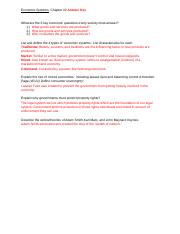Studies 1 6 2 4
New Jersey Student Learning Standards
Social Studies
Beverly Plein, Coordinator
Social Studies Printouts Social Studies Themes Social Studies Lesson Plans African American History African American Identity in the Gilded Age: Two Unreconciled Strivings After Reconstruction Baseball, Race Relations and Jackie Robinson Segregation: From Jim Crow to Linda Brown Slavery in the United States: Primary Sources and the Historical. At Friday Study Ministries, we use and like several of the translations of Scripture. For instance, the King James is ideal for memorization, due to the beauty of the language. However, we often use the New American Standard Bible for studies, because of its faithfulness to the Greek, Hebrew and Aramaic languages. Grade 4 Mathematics Module 1: Topic F Lessons 17-19 - Zip File of Individual Documents (7.31 MB) Grade 4 Mathematics Module 1: Arabic - Zip Folder of PDF Files (5.59 MB) Grade 4 Mathematics Module 1: Arabic - Zip Folder of Word Documents (6.2 MB) Grade 4 Mathematics Module 1: Bengali - Zip Folder of PDF Files (4.79 MB) Grade 4 Mathematics.
New: The New Jersey Student Learning Standards (NJSLS) are reviewed and revised every five years. The 2020 NJSLS were adopted by the State Board of Education on June 3, 2020. The 2020 New Jersey Student Learning Standards webpage provides links to the 2020 NJSLS and information regarding curriculum implementation dates.
Social Studies Education in the 21st Century
The digital age has transformed social studies education, allowing 21st-century learners to transcend the limits of time and place and experience historic events virtually. By expanding their learning networks through online collaboration with experts and other students from around the world, New Jersey social studies students develop an increased depth of understanding of our global society. At the same time, their understanding of the fundamental principles and values of American democracy and citizenship provides the conceptual framework that allows them to make informed decisions about local, national, and international issues and challenges.
Mission: Social studies education provides learners with the knowledge, skills, and perspectives needed to become active, informed citizens and contributing members of local, state, national, and global communities in the digital age.
Studies 1 6 2 4
Vision: An education in social studies fosters a population that:
- Is civic minded, globally aware, and socially responsible.
- Exemplifies fundamental values of American citizenship through active participation in local and global communities.
- Makes informed decisions about local, state, national, and global events based on inquiry and analysis.
- Considers multiple perspectives, values diversity, and promotes cultural understanding.
- Recognizes the implications of an interconnected global economy.
- Appreciates the global dynamics between people, places, and resources.
- Utilizes emerging technologies to communicate and collaborate on career and personal matters with citizens of other world regions.
Studies 1 6 2 46

Intent and Spirit of the Social Studies Standards
All students receive social studies instruction from Preschool through grade 12. The challenges of the 21st century are complex, have global implications, and are connected to people, places, and events of the past. The study of social studies focuses on deep understanding of concepts that enable students to think critically and systematically about local, regional, national, and global issues.
Authentic learning experiences that enable students to apply content knowledge, develop citizenship skills, and collaborate with students from around the world prepare New Jersey students for the 21st-century workplace. The natural integration of technology in social studies education allows students to overcome geographic borders, apply scientific and mathematical analysis to historical questions and contemporary issues, appreciate cultural diversity, and experience events through the examination of primary sources.